Greg Kihn kihn-tinues rocking and rolling with the recent release of his album Rekihndled, his first set of new songs in over 20 years. And he’s clearly still got the magic touch. Fun-filled songs like “The Life I Got” and “Big Pink Flamingos” jump out of the speakers, and fit smashingly with Kihn’s acclaimed body of work.
Kihn got his start with the legendary Beserkley Records, with his first solo album coming out in 1976. Things really took off when “The Breakup Song (They Don’t Write ‘Em)” went Top 20 in 1981, and two years later “Jeopardy” hit Number Two, aided by a clever and memorable video that received lots of airplay on then-young MTV. “Jeopardy” was denied the top slot by Michael Jackson’s “Beat It” – no shame there! Kihn has also written six novels, and he spent 16 years as a popular DJ in San Jose.
The following interview with Greg Kihn was done by phone on 7/25/17.
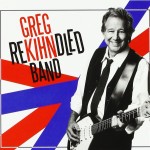
Jeff Moehlis: I checked out your new album, and it’s really cool! Can you tell me a bit about how that album came together?
Greg Kihn: That was a really easy album to make. I’ve made a lot of albums in my day – 20 or 30 of them – but this was the easiest one. Let me tell you about the band, because the band is important. My son Ry is the lead guitarist. Now it’s important when your son is the lead guitarist… he’s a former student of Joe Satriani, and he went to Berklee School of Music in Boston and he graduated from CalArts as a jazz guitar major. And that kid can really play. That’s Ry. And then we’ve got a new bass player Robert Berry, who’s also the producer of the Greg Kihn Band, and he does a crackerjack job. And we’ve got a new drummer also, a guy by the name of Dave Lauser. Dave comes to us from Sammy Hagar – he’s on loan from the Sammy Hagar Collection, I guess you could say.
So you have those guys, and it was a fairly close-knit group. We had a studio we were rehearsing in – it was Soundtek Studios in Campbell, California. We were going down there two or three times a week, and just kind of kicking song ideas. And one day, Ry was in there, and he said, “Check this out!” He was playing the riff that would become “Big Pink Flamingos”. Out of the clear blue, I didn’t have any preconceived notions, I just started singing “big pink flamingos”. I don’t know where it came from – it just came out of the air. And, I’m not kidding you, we wrote that song in about 20 minutes. Because once we had the guitar riff down, and then the “big pink flamingos”, once I visualized the girl – the kind of trailer trashy girl with the hair up and the stretch pants, and the chewing gum, you know all that, that trailer thing – so once I got the girl in my mind, it was real easy to write the song.
I found that as we worked on the album, almost every song was that easy. And if songs were more of a struggle, we just kind of put them on the backburner for a while and came back to them later. But most of the time it was very easy, and I say liberating, because it was liberating to be in a studio with nobody telling you what to do. That’s just great. It’d been a couple of years since I’d been in the recording studio, so it was just great to be in there doing it. Finally I got my radio career behind me, and I could spend a little time in the studio, because right up to that point I was doing a morning show on K-Fox, and you know what that’s like – you get up at four in the morning every day, and you don’t have a life. I did that for 18 years. So when that was over, it was like a breath of fresh air. Suddenly I had all this time, and I could start working on my own projects.
JM: Had you been writing during those years as a DJ?
GK: It’s embarrassing. I wrote very little, maybe one or two songs a year. I just didn’t think about it. I was writing novels. I wrote something like 7 novels during that same period. But writing novels, in a weird way, is easier than writing songs. It just seemed like it was easier to do. But now I look back on all of this stuff, and it all seems easy to me. The creative spark, whatever that is, it’s like the most important bone in your body, and it’s really important that you nurture that creative spark whether you’re writing a novel or a song or you’re making an album or you’re on the radio. Or whatever it is that you’re doing, that creative spark comes into play.
JM: Is songwriting kind of like riding a bicycle, where once you learn how to do it you don’t forget? Did you find that to be the case for the new album?
GK: You know, in a way, yes it was. Because I remember writing terrible songs when I was like 13, 14, and 15. I was a terrible songwriter. But I remember doing it. I knew they were bad songs – I didn’t play them for anybody. But I remember doing it. I remember buying, for instance, a rhyming dictionary when I was like 14 or 15. You know, once you’ve bought a rhyming dictionary it’s time to get serious.
Anyway, I started writing in earnest probably around high school time. I’d already started writing stories. You know, I love Bob Dylan, and I love The Freewheelin’ Bob Dylan album. I remember buying and thinking, “This is what I’ve gotta do. I’ve gotta do this.” But I couldn’t write songs, alas, as good as Bob Dylan, at least in the beginning.
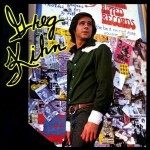
JM: It’s kind of hard to believe, but your first record came out over 40 years ago.
GK: Oh my God! Is that real? I don’t believe it!
You know, we’re a heritage band. We go way back. Look, my son’s in the band for Christ’s sakes. I guess you’ve got to be born into this now. I feel like I’ve got a legacy. I’ve got a legacy of all these albums, and all of that music that I’ve made for Beserkley and EMI and all those labels. It was really a labor of love – it really was. I guess I look back on it now and I was legacy-building. Now I look back on it like, “God, I’ve got songs that I wrote in 1976, for God’s sake! How old was I, two?” And I listen to them and they’re not bad. It’s unbelievable to me.
JM: You mentioned Beserkley Records. What was special about that label?
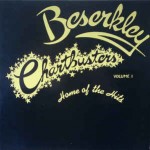
GK: Well, it was the first of the great independent labels. I mean, there was a big gap after Sun Records in Memphis. There really wasn’t anything, there was no independent scene when we came out. So we were the first independent label, and we had no budget. We had zero budget. I remember that was why we did Beserkley Chartbusters, because we didn’t have enough money for anybody to make an album, but we could make one album with everybody doing one or two songs on it. Which we did – that was Beserkley’s Chartbusters Volume 1.
Once that was out, you know it was really funny, because we were signed to Playboy Records. Playboy had an actual record company. It was for Barbi Benton, you know, Hugh Hefner’s girlfriend. And everybody was saying to Hugh, “You’ve gotta have other bands. It just can’t be a one girl label. You’ve got to sign some bands.” So he came to Berkeley one day, and I remember it was all four bands were playing at the Keystone – it was Earth Quake, The Rubinoos, The Modern Lovers, and the Greg Kihn Band. He just came in and it was like one-stop shopping. “OK, I’ll just sign this label and I’ll get all these guys.”
Suddenly we had budget and we all started cutting albums. That Playboy thing didn’t last very long, I think maybe one or two years, but it was our start, and once we kickstarted that thing we didn’t want to leave it. We were allowed to do our own thing, and even now looking back it’s a wonderful thing, because you’re not a commercial artist, you’re making art. You’re not making product. That was the difference. Everybody was making product, and we thought we were making art. That was the cool thing about Beserkley. You know, we didn’t have a hit until our 7th album. Think about that. That could never happen today.
JM: It’s a different era now.
GK: Really, it is.
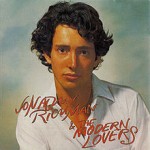
JM: Do you have any Jonathan Richman stories from back in the day that you’re willing to share?
GK: Oh man, I’ve got a ton of them! The guy, he was living at the Beserkley house for a while. Everybody that was signed to the label lived at some point lived in that Beserkley house. I believe it was right at the corner of Spruce and Eunice in Berkeley – you know, Berkeley Berkeley [1199 Spruce Street]. The headquarters was our kitchen there, and all the bands would come over and hang out all day and write songs. We would go and we would record afterhours because it was cheap and we could get studio time. But I remember it was always special. We always thought we were special. We weren’t just a regular old band.
JM: I understand that you worked at Rather Ripped Records in Berkeley.
GK: Yes, that was the world’s greatest record store, without a doubt. I worked there with Gary Phillips, who at the time was the rhythm guitarist for Earth Quake, but he later joined my band. He and I were behind the counter. It was like two lunatics behind the counter. We couldn’t even add up a sales slip. But we could sell records. We really knew how to play records.
And I remember my first album, Greg Kihn, I was working at Rather Ripped Records the day that we shot the cover. And I was actually working. I was on a break – they said, “we’ll give you ten minutes on a break.” So I went around the corner, right by the front of the store, and I shot the album cover right then and there, and I went back to work. It’s crazy stuff.
JM: I understand that Patti Smith’s first West Coast gig was at Rather Ripped. Did you happen to catch that one?
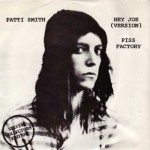
GK: Yeah, I was at both of her shows there, and they were fantastic. Lenny Kaye was with her. This was when she just had her first single out, “Piss Factory”, and “Hey Joe” was the other side. I was knocked out. It was one of the best things I ever heard.
The guys at Rather Ripped, that’s the kind of things that they would do. If they liked you, they would pay to get you to come out and do a gig. And it was amazing. I mean, Patti was completely unknown, and there were maybe like 20 people in the store, and she did one of the greatest performances I’ve ever seen. It was fabulous.
She wasn’t the only one. Iggy Pop was there. There was a whole sub-strata of musicians that were working that would later become famous and make albums. But in the early days it was just fun.
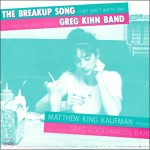
JM: I want to ask you about your first big hit, “The Breakup Song”. Can you tell a bit about how that song came together?
GK: I came up with that riff, that guitar riff. I know Gary in heaven is looking down going, “That’s my riff!” But, no. I stole it from Television. There was a band called Television back in the New Wave days. They had a riff that was quite similar. I don’t know if I did it subconsciously or not, but we had the chorus of the song, and I didn’t have any verses. Then we took the verses of another song that we were working on, and we hooked it up with the chorus of “They don’t write ’em like that anymore”, and that song was born. It was really remarkable, because there were two pieces of a song that just wouldn’t go together, and then they went together.
I remember getting thrown out of my house by first ex-wife. It was like the day before I wrote that song. I remember driving up in the rain, and there was all of junk, all of stuff on the front lawn [laughs]. All my clothes and everything. It was like, “OK, I don’t think I’m gonna be staying here tonight.”
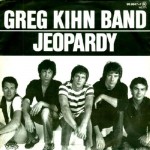
JM: I grew up during the golden era of MTV, which means I grew up listening to your song “Jeopardy”. When you wrote that, did you have any sense that it was something special?
GK: It’s crazy, but I really did. I really felt that the minute that I wrote that song. I wrote it with Steve Wright, and I remember when he came over to my house one day he had a little Casio keyboard and he just started playing it, and we wrote it in 15, 20 minutes. It spontaneously wrote itself. As soon as we started playing it, I remember going down to the rehearsal hall that night and showing the guys in the band, and they started playing it immediately. We recorded it that weekend. And I knew – every time I heard it, I said, “You know, that’s really a special song.”
When we did the video for it, that was special, too, because it was a Night of the Living Dead kind of a parody that Joe Dea was the director of, and he did a brilliant job. In fact, he did all of our videos, and they all fit together. That was the first concept video at the time. It was pretty cool, because everybody else was doing fake live videos, and we were, I think, among the few concept videos, and that’s why we got so much airplay.
And then, six months later here comes Weird Al, and then he has a hit with it, with “I Lost On Jeopardy”. His video was a big hit, and in that one I did a cameo appearance.
JM: Is it a badge of honor to be spoofed by Weird Al?
GK: Yeah, it really is. A lot of people came up to me back in those days, and went, “You haven’t arrived until you’ve been spoofed by Weird Al”. But, hey, listen, I loved Weird Al, and God bless him – I still get money from that guy. So it’s a wonderful thing.
JM: As you say, you had a cameo at the end of his video. What was it like working with him on that?
GK: Oh, it was wonderful. We were laughing all day long. It took about one 24 hour shoot. I got to meet Don Pardo – that was a highlight. It was a lot of fun just hanging out. Weird Al was a funny guy – it’s just in his bones. So I really enjoyed that. And I see it now, and it looks like just as much fun as it was.

JM: Overall, what are your reflections on those early days of MTV, of which you were a big part?
GK: You know, they were innocent days. We were young and we were innocent. We really didn’t know what we were doing – we were just doing it. I think that that was the key, the fact that we didn’t have any expectations. We were trying things, and if they worked – great. If they didn’t work, we didn’t care. We just moved on to the next thing. I remember doing a whole bunch of videos. I remember the “Reunited” video, and the “Lucky” video, and they all hooked together. You can view them as a little mini-movie. It was so much fun to make those videos because they were concept videos, and they were like mini-movies.
I’ll tell you the truth, man. I’m going to go to Hell for what I did in that church afterhours. I tell you, that’s a real church. It was Mission Delores Church in San Francisco. A famous church – it was in the Dirty Harry movie. And we were doing stuff backstage at the church that I’m sure Jesus would not approve of. This was during our heavy partying days, if you know what I mean. We were partying like 24/7 in those days.
JM: Well, if you want to do a confession, I’m game. If not, that’s cool.
GK: It’d be more like two million Hail Mary’s, man.
JM: Sadly Steve Wright passed away earlier this year. Can you tell a little bit about what he brought to the band and to the music?
GK: Steve – he was my brother. I love Steve. We were closer than brothers, you know? I mean, the guy outlasted three wives [laughs]. He outlasted multitudinous booking agents. And he was one of the great singers of all time. His voice – it was uncanny. I get misty thinking about it, because the guy just had a lot more music in him. He was writing right up to the end. He was a great songwriter. One of the reasons that I was a good songwriter was that I had a guy who was my partner that was very creative. He was coming up with some sophisticated music. I’m a three chord guy, man. I’ve always been a three chord guy. In fact, in the early days people would come up and I’d say, “That’s all there is. There’s only three chords. That’s it!” And after all these years I’m still playing those three chords. I made a career out of it.
JM: You mentioned that your son Ry took lessons from Joe Satriani, and I know that Joe was part of your band for a brief period. How did that work out?
GK: Well, the problem was Joe was just too brilliant. He was just too good. We had been wanting to get Joe in the band for years. He was in a band called The Squares – they were also a Berkeley band – and they used to play at the Keystone and stuff. We’d call him up periodically, “Hey, would you join our band?” “No, no, I’m still in The Squares.”
Finally The Squares broke up around ’84 or ’85, and Joe came along and he said, “Now I’ll join your band.” And he was in for like 2 years, but he was so good. I mean, I remember watching him onstage and forgetting what I was doing, because I was so absorbed with watching what he was doing. I remember telling him, “Joe, hey dude, you are too good for this band. You’ve gotta go out and do your thing. You’ve gotta be a solo artist. You’re never going to be happy playing these three chords” [laughs]. You know, I guess he took my advice. Which is horrible. Why’d I tell him to leave the band? What, was I nuts? He was great, and I just loved playing with him, and he really brought a whole new level of professionalism. I miss him. I see him now in Chickenfoot. But that was a great time. You can’t say enough good things about Joe Satriani. And, this is back when he had hair!
JM: That’s true!
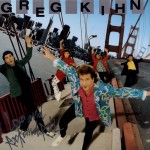
GK: Yeah, on the album cover [of Love & Rock & Roll] is a rare shot of Joe with hair.
JM: I played guitar, and I remember when Surfing With the Alien came out and he was in all the guitar magazines. And then all of sudden he had no hair!
GK: The guy is so good. He started warming up… We’d do a soundcheck, and people were standing around watching him at the soundcheck, because he’s always great.
JM: What advice would you give to an aspiring musician?
GK: That’s a toughie. I would say be true of heart. You want to be who you are. You want to be truthful – I mean I think that’s the most important thing. When you write a song, make it from the heart. When you sing a song, try to sing it from the heart. You know, if you’re doing it just to meet chicks or to make money, that’s not the right reason to be in a rock band. The real reason is you want to express yourself, and it comes from the heart. That’s my two cents.
JM: Your new album is being called the first album of new songs in 21 years. Are we going to have to wait 21 years for the next one?
GK: [laughs] No, I think it’s going to probably be less than a year, because we’ve already got three songs recorded for the next album. So, yeah, we’re ready to rock. I’ve been super creative lately. In fact, we’re going into the studio tomorrow – I can’t wait to get in there. So I think it will be a little bit shorter than 21 years. Hey man, I was on the radio all that time. I wasn’t in the right frame of mind.
JM: Do you have anything else in the works? Maybe another novel?
GK: I’m still writing. I’m always writing. My wife jokes that I’m always writing a screenplay and I’m always writing a novel. And actually it’s true – I am writing a screenplay and a novel. I guess when I get those out of my hair I’ll do a couple of new ones.
I have some really good songs cooking up for the next album, so I’m looking forward to doing it.
JM: I look forward to hearing them, and I know a lot of other people are as well. And if I can put a little pitch in – I’m based in Santa Barbara, and I notice you’re not playing near Santa Barbara anytime soon.
GK: Yeah, we should be. I’m going to start bugging my booking agent to see if he could get us there, because I love the West Coast. I just love every inch of it. We’ve always done well in coastal towns, and I feel like Santa Barbara [laughs] – it doesn’t get much better than that! My buddy Dennis is out there. I’m just thinking to myself, isn’t that where Oprah lives?
JM: She lives in Montecito, but that’s basically connected to Santa Barbara. Are you friends with Oprah?
GK: No, I am not. But I do know Dennis Miller – he’s a great guy.
JM: You’re always welcome. Or there’s Ventura or San Luis Obispo.
GK: You know what, years ago I used to live in Ventura. When I got divorced the first time, I just wanted to live at the beach. I’d never been at the beach. And I had a little house in Oxnard, right on the Silver Strand, right on the beach. It was a tiny little two-bedroom house, really tiny. It was old and cool. I lived there for like a year or two, just walking on the beach and writing. I did a lot of writing there. That was beautiful time. I remember – it was 108 Eagle Rock Avenue. I just remembered that. It’s been what, 40 years? I just remembered it. Eagle Rock Avenue.
JM: I wonder if the people who live there now realize its history.
GK: I don’t know. I think that that the house was so old they couldn’t tear it down. It’s one of those semi-historic places. So maybe it’s still there. I hope so.
God, I think I’ve lived in every town in America. At least in California. I once lived in Ventura, I once lived in Oxnard, I once lived in Santa Monica two or three houses from the beach there, right there at Will Rogers beach.

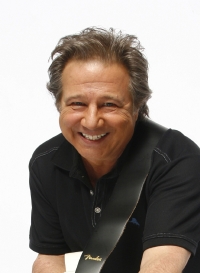
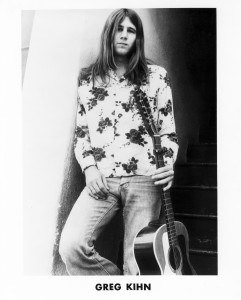
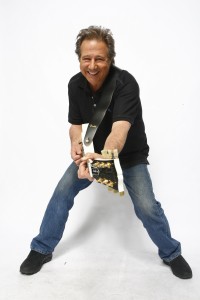
woah I”ve never seen that hippie picture of Greg before … good find! barely recognizable